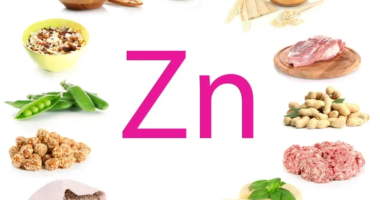Protein and carbohydrates in breast milk vs. fat: Which have a significant impact on infant growth? According to a study published in the journal Advances in Nutrition, protein and carbohydrates in breast milk play a more significant role in infant growth compared to fat. This study, which analyzed data from over 1,500 infants, found that babies who consumed breast milk with higher levels of protein and carbohydrates exhibited faster growth than those who consumed breast milk with lower levels of these nutrients. Interestingly, the study also revealed that the quantity of fat in breast milk did not have a substantial impact on infant growth.
These findings align with previous research that has established breast milk as the optimal source of nutrition for infants. Breast milk contains a complex blend of nutrients that are crucial for infant growth and development, including protein, carbohydrates, fat, vitamins, minerals, and antibodies.
The protein in breast milk is essential for building and repairing tissues, while the carbohydrates provide energy for infants to grow and develop. The fat in breast milk also provides energy and is crucial for brain development.
In addition to these nutrients, breast milk also contains antibodies that help protect infants from infection. Breastfeeding is recommended for all infants for at least the first six months of life.
Here’s a summary of the roles of protein, carbohydrates, and fat in breast milk for infant growth:
Protein: Protein is a building block for tissues and muscles, playing a vital role in infant growth and development. Breast milk contains high-quality proteins that are easily digestible and utilized by infants. These proteins, including whey, casein, and lactoferrin, contribute to muscle growth, tissue repair, and the development of the immune system.
Carbohydrates: Carbohydrates provide the primary energy source for infants, fueling their activities and supporting their rapidly growing bodies. Breast milk contains lactose, a simple sugar that is specifically designed for infant digestion. Lactose not only provides energy but also promotes the growth of beneficial gut bacteria that are essential for digestive health and overall well-being.
Fat: Fats are essential for energy storage, brain development, and the absorption of fat-soluble vitamins. Breast milk contains a rich blend of saturated, unsaturated, and long-chain polyunsaturated fatty acids (LCPUs), including DHA and ARA, which are crucial for brain and eye development. These fats also provide a concentrated source of energy and contribute to the overall nutrient density of breast milk.
While all three macronutrients play a role in infant growth, protein and carbohydrates appear to have a more direct and significant impact on growth parameters like weight and length. Fat, on the other hand, contributes to overall energy intake and plays a crucial role in brain development.
In addition to macronutrients, breast milk is a rich source of vitamins, minerals, and bioactive compounds that are essential for infant health. These nutrients support bone development, brain function, and overall growth. Antioxidants present in breast milk, such as vitamins C and E, protect infants from oxidative stress and promote immune system development.
It’s important to note that breast milk composition is dynamic and can vary depending on factors such as the stage of lactation, maternal diet, and individual differences. However, the overall balance of macronutrients in breast milk is optimized for infant growth and development.
RELATED: 12 Amazing Foods That Increases A Woman’s Breast Milk Fast
How can a mother increase the protein and carbohydrates in her breast milk?
While the composition of breast milk is primarily determined by a mother’s genetics and hormones, there are a few things she can do to increase the protein and carbohydrate content. These include:
- Eating a healthy diet: A diet that is rich in fruits, vegetables, whole grains, and lean protein will help to ensure that a mother is getting the nutrients she needs to produce nutritious breast milk.
- Drinking plenty of fluids: Fluids are essential for milk production, so it is important to drink plenty of water and other beverages throughout the day.
- Getting enough rest: When a mother is well-rested, her body is better able to produce milk.
- Frequent feeding: Frequent feeding helps to stimulate milk production and encourages the baby to take in more nutrients.
In addition to these general tips, there are a few specific foods that may help to increase the protein and carbohydrate content of breast milk. These include:
- Protein-rich foods: Lean meats, poultry, fish, eggs, beans, lentils, nuts, and seeds are all good sources of protein.
- Carbohydrate-rich foods: Fruits, vegetables, whole grains, and dairy products are all good sources of carbohydrates.
If a mother is concerned about the nutrient content of her breast milk, she should talk to her doctor or a lactation consultant. They can help her to assess her diet and provide her with personalized advice.
It is important to note that there is no need to make drastic changes to a mother’s diet in order to increase the protein and carbohydrate content of her breast milk. Small changes, such as adding a few extra servings of fruits, vegetables, and whole grains to her diet, can make a big difference.
Don’t Miss: Garlic for Nursing Mothers: Does It Increase Breast Milk Supply?
Conclusion
In conclusion, protein and carbohydrates play a more significant role in infant growth compared to fat. Breastfeeding is the optimal source of nutrition for infants, providing a complex blend of nutrients that are crucial for their growth and development. While breast milk composition can vary depending on factors such as the stage of lactation, maternal diet, and individual differences, the overall balance of macronutrients is optimized for infant growth. Mothers can increase the protein and carbohydrate content of their breast milk by following a healthy diet, drinking plenty of fluids, getting enough rest, and frequently feeding their baby. If a mother is concerned about the nutrient content of her breast milk, she should talk to her doctor or a lactation consultant.
Continue to check our website soundhealthandlastingwealth.com for more articles of this kind. And, please use our comment section as well, we would love to hear from you.










